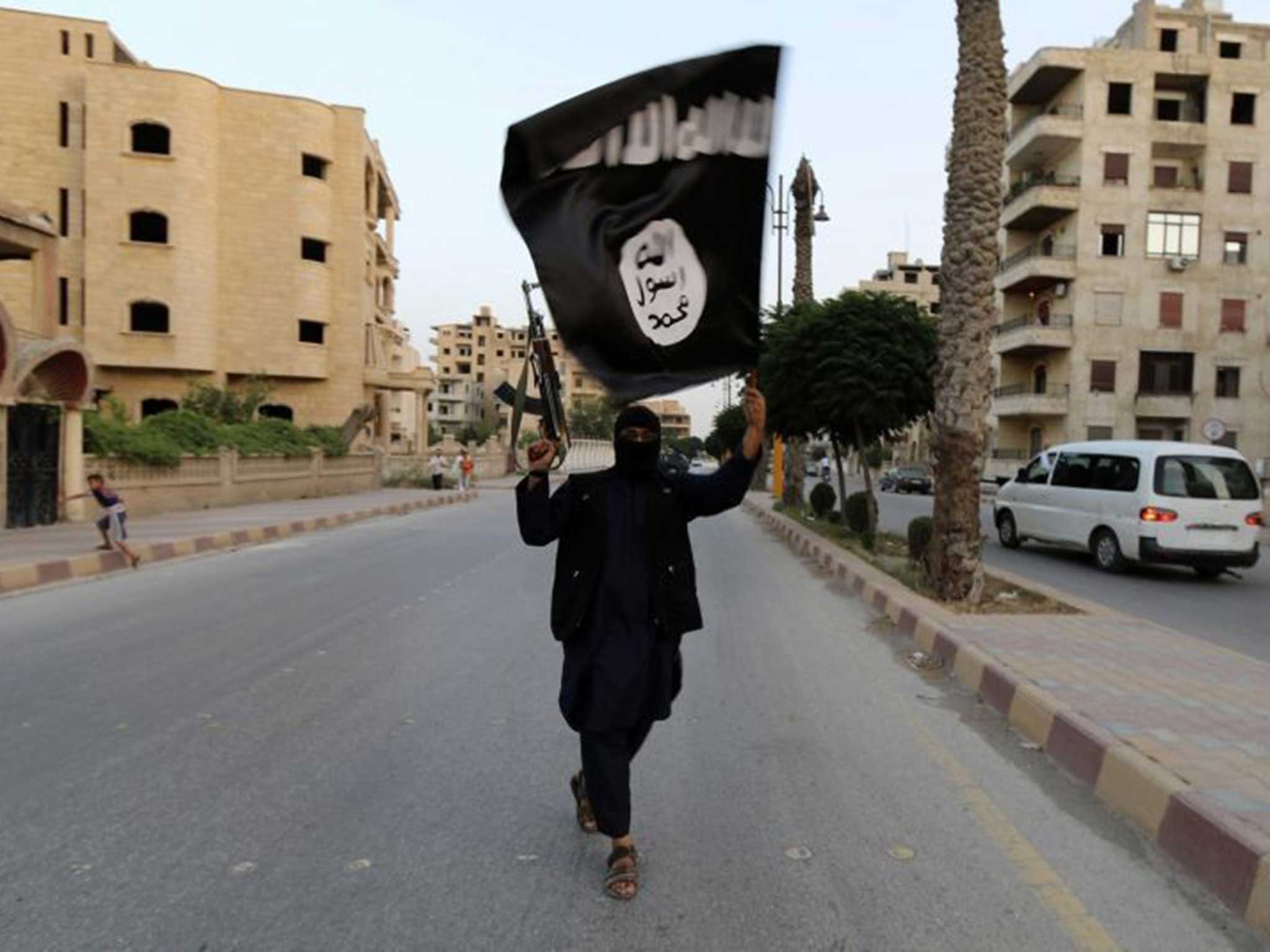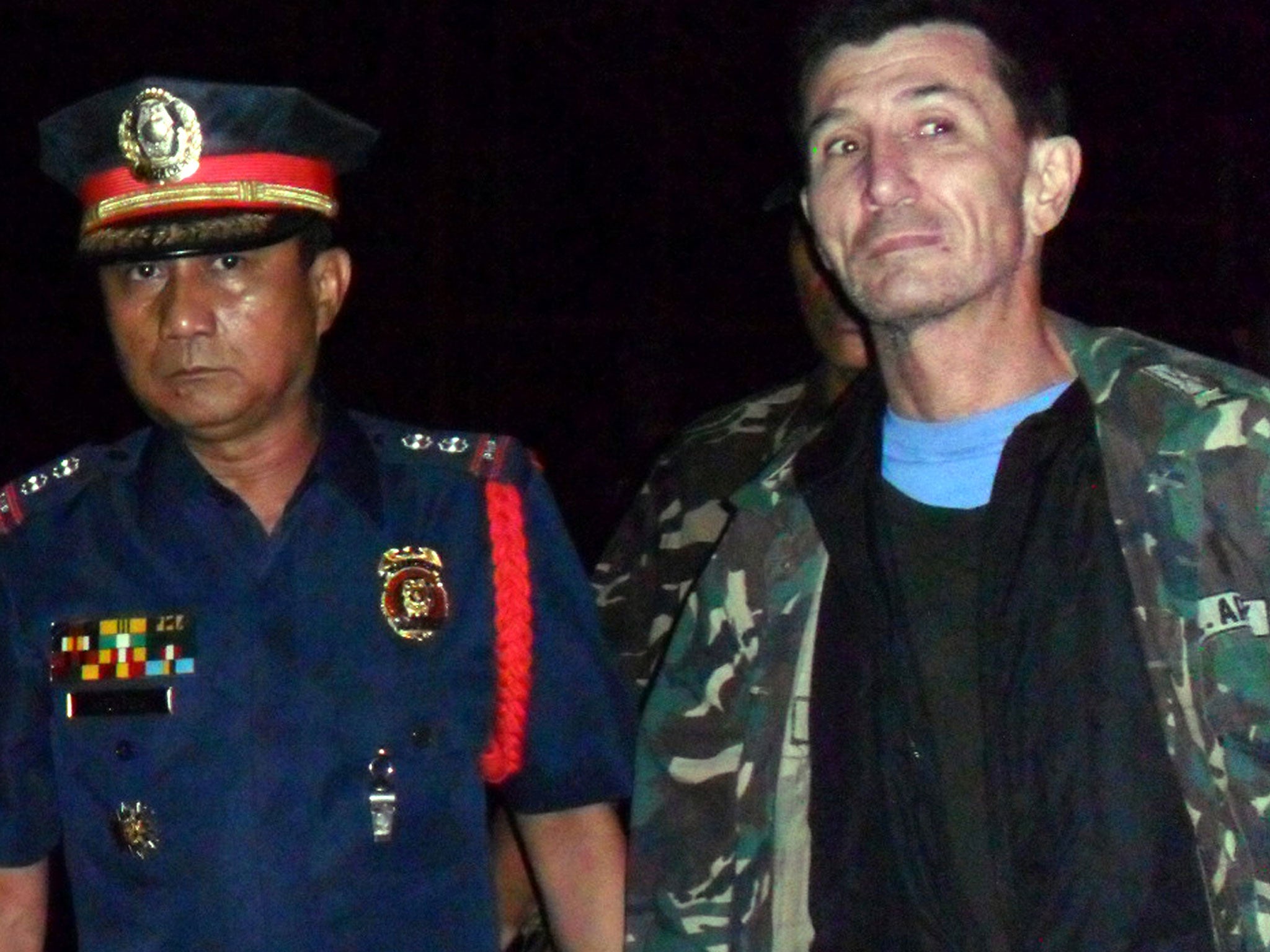Steven Sotloff beheaded: What is it like to be held hostage by Islamic militants?
Former hostages have described the extremities of being held by militants

Your support helps us to tell the story
From reproductive rights to climate change to Big Tech, The Independent is on the ground when the story is developing. Whether it's investigating the financials of Elon Musk's pro-Trump PAC or producing our latest documentary, 'The A Word', which shines a light on the American women fighting for reproductive rights, we know how important it is to parse out the facts from the messaging.
At such a critical moment in US history, we need reporters on the ground. Your donation allows us to keep sending journalists to speak to both sides of the story.
The Independent is trusted by Americans across the entire political spectrum. And unlike many other quality news outlets, we choose not to lock Americans out of our reporting and analysis with paywalls. We believe quality journalism should be available to everyone, paid for by those who can afford it.
Your support makes all the difference.A British hostage being threatened by Islamic State (Isis) militants has been held captive for 17 months and moved across an estimated ten locations, it has now been revealed.
David Haines was presented on camera after the beheading of American journalist Steven Sotloff, whose death followed that of the late photojournalist James Foley. Mr Sotloff was held for over a year by fighters.
Former hostages who have survived similar lengths of time after being taken by Islamic militant groups have described the extreme conditions they endured. Many recount the importance of forming some sort of routine and undertaking the most menial of tasks in order to stay level-headed.
French journalist Nicolas Henin was held by Isis militants for ten months in Syria. He recalled spending one week hand-cuffed to fellow hostages, “day and night”.
“The conditions were not always hard. The physical violence is not the worst,” he told France24. “The uncertainty of not knowing what is going to happen the next day or the next minute is traumatising.
Profile: Who are Isis?
Profile: James Foley
David Haines: British hostage is an experienced aid worker
Steven Sotloff: 'Brave' journalist who 'loved' the Middle East
“That is the conditioning of the hostages. That is itself already a sort of violence."
The late James Foley’s final dictated letter to his family gave insights into his time in captivity, detailing the things he and other hostages to cope with their situation. He described passing the time by discussing films, sport and trivia and playing games made up of scraps found in their jail cell.
“The games and teaching each other have helped the time pass,” he wrote. “They have been a huge help. We repeat stories and laugh to break the tension.”
Mr Henin told L’Express magazine Mr Foley became “the whipping boy of jailors” because he was American and his brother worked for the US Air Force.
Didier François, a French journalist who was also held hostage with Mr Henin for ten months, said the group spent "six whole months in basements without seeing daylight” and were often moved “very quickly in crazy and unpleasant conditions".
Their period of detention had been "rough … and sometimes violent", he added.
Warren Rodwell, an Australian man who survived 472 days being held hostage by the Islamic militant group Abu Sayyaf, said his captors incompetence nearly killed him at times, including when he was being taken by boat to his first destination.
"After we got out to sea for an hour, the boat exploded. The motors caught on fire and that's when I could see the errors being made," Mr Rodwell told ABC News.
He was moved between mountain jungles and mangrove swamps in the southern Philippines and said he tried to solve mathematical problems to try and stay sane.

Mr Rodwell, who lost 30 kilograms during his time in captivity, said his captors were also deprived of food and became ill.
"I'd observe their behaviours and because I'd see a change in guards I'd also see some of them getting sick, others going crazy," he said.
"That was always refreshing, when you see that those who are supposed to be in the more powerful situation are suffering more than you are."
A family held hostage by the Islamist group Boko Haram said they were kept in extreme heat with little access to water.
Albane Moulin-Fournier said she was held in a different location to her husband Tanguy after they were kidnapped in Cameroon and taken to Nigeria.
She said her four children, aged between five and 12, coped with the situation relatively well. “[The children] did not cry, did not have nightmares," she said. “They played with whatever they could find, bits of wood, empty sardine tins.”
Moulin-Fournier’s brother Cyril, also held captive, spoke of the importance of daily routines in staying sane.
"There were activities. We folded up the sheets in the morning. We went to prepare breakfast,” he said. “It was important to keep up a daily routine."
Join our commenting forum
Join thought-provoking conversations, follow other Independent readers and see their replies
Comments